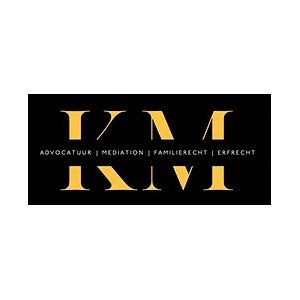Best Private Client Lawyers in The Hague
Share your needs with us, get contacted by law firms.
Free. Takes 2 min.
List of the best lawyers in The Hague, Netherlands
About Private Client Law in The Hague, Netherlands
Private Client law in The Hague focuses on providing legal services for individuals and families to help them navigate the complex landscape of personal wealth, family, and succession planning. This field covers matters such as wills, inheritance, estate planning, taxation, trusts, and guardianship. The Hague, as the seat of government in the Netherlands and home to numerous international organizations, features a skilled community of legal practitioners dedicated to addressing both domestic and international aspects of Private Client law.
Why You May Need a Lawyer
Many people seek the assistance of a Private Client lawyer for guidance on sensitive and complex matters related to personal finances and family structures. Common scenarios include disputing a will or inheritance, planning for the transfer of assets to the next generation, establishing trusts, navigating Dutch and cross-border tax laws, seeking guardianship of a minor or incapacitated adult, or resolving international family law issues. The involvement of a lawyer ensures that your interests are protected, and that you comply with all relevant legal requirements.
Local Laws Overview
Dutch Private Client law is governed by the Dutch Civil Code and complemented by local tax regulations and international treaties. Key aspects include:
- Inheritance Law: The Netherlands applies forced heirship rules, protecting children's rights to a portion of an estate regardless of the will's contents.
- Wills: Wills must follow strict formalities. Notarized wills are common and help avoid disputes.
- Gift and Inheritance Tax: Both are subject to Dutch taxation, which varies depending on the relationship to the deceased or donor.
- Divorce and Family Law: Dutch law prescribes division of marital assets and spousal maintenance, with specific procedures for international families.
- Guardianships: Legal mechanisms exist to protect vulnerable individuals, allowing for the appointment of guardians in specific cases.
- International Aspects: With many internationals residing in The Hague, cross-border succession and tax matters are frequently addressed by Private Client lawyers.
Frequently Asked Questions
What is a forced heirship rule and how does it apply in The Hague?
Forced heirship in the Netherlands requires that a portion of a deceased's estate be reserved for direct descendants, regardless of the provisions of the will. This protects children's inheritance rights, even for international families residing in The Hague.
Can foreigners make a Dutch will?
Yes, foreign nationals living in the Netherlands can make a Dutch will. They must comply with the formality requirements under Dutch law, and it is often advised to consult a civil law notary for this purpose.
How is inheritance taxed for residents in The Hague?
The Netherlands levies inheritance tax on the worldwide assets of its residents. The tax rate and exemptions depend on the relationship between the deceased and the beneficiary.
What is the role of a civil law notary in Private Client matters?
A civil law notary is a legally qualified professional in the Netherlands who prepares and registers legal documents such as wills and deeds, ensuring their legality and proper execution.
How can I contest a will in The Hague?
You can contest a will on grounds such as lack of legal capacity, improper execution, or undue influence. Engaging a lawyer is advisable to assess the likelihood of success and navigate the legal process.
Are trusts recognized under Dutch law?
Dutch law does not recognize common law trusts, but there are alternatives such as foundations (stichtingen) and other legal structures for asset protection and management.
How do prenups and marital contracts work in the Netherlands?
Marriage contracts, including prenuptial agreements, are widely used in the Netherlands to arrange the division of property and finances between spouses. They must be executed before a notary.
What if I have assets in multiple countries?
International estate planning can be complex due to varying laws. Private Client lawyers in The Hague often work alongside foreign experts to ensure compliance and tax efficiency across all jurisdictions involved.
Can I appoint a guardian for my children in case of my death or incapacity?
Yes, you can appoint a guardian for your minor children in your will. This designation is legally binding and will be recognized by Dutch authorities, who will ultimately confirm the appointment in the child's best interest.
What documents do I need to begin estate planning with a lawyer?
You should prepare identification, details of your assets and debts, family information, existing wills or contracts, and any documents related to foreign assets or citizenships.
Additional Resources
For further information and assistance, you may consult the following entities:
- Koninklijke Notariële Beroepsorganisatie (KNB): The Royal Dutch Association of Civil-law Notaries provides guidance and a directory of notaries in The Hague.
- Belastingdienst: The Dutch Tax Authority offers resources on inheritance and gift taxes, as well as international tax matters.
- Hague Conference on Private International Law: Based in The Hague, this organization oversees international legal cooperation and may provide useful information for cross-border cases.
- Rechtspraak: The Netherlands Judiciary offers accessible information on court procedures and legal rights in family and inheritance matters.
- Legal Aid Board (Raad voor Rechtsbijstand): This body helps individuals with limited means find subsidized legal assistance.
Next Steps
If you believe you need legal assistance in the field of Private Client law in The Hague, it is wise to:
- List your personal circumstances and goals clearly, including all relevant financial and family details.
- Collect and organize documents such as identification, asset statements, property deeds, family records, and any existing legal documents.
- Research and shortlist qualified Private Client lawyers or notaries in The Hague with experience relevant to your needs, or contact local legal organizations for referrals.
- Arrange an initial consultation to discuss your case, understand your options, and establish a clear plan of action.
- If cost is a concern, inquire about legal aid services or fixed fee arrangements often available in Dutch legal practice.
Working with a knowledgeable Private Client lawyer will help ensure your interests and those of your family are effectively protected and that all solutions meet Dutch legal requirements.
Lawzana helps you find the best lawyers and law firms in The Hague through a curated and pre-screened list of qualified legal professionals. Our platform offers rankings and detailed profiles of attorneys and law firms, allowing you to compare based on practice areas, including Private Client, experience, and client feedback.
Each profile includes a description of the firm's areas of practice, client reviews, team members and partners, year of establishment, spoken languages, office locations, contact information, social media presence, and any published articles or resources. Most firms on our platform speak English and are experienced in both local and international legal matters.
Get a quote from top-rated law firms in The Hague, Netherlands — quickly, securely, and without unnecessary hassle.
Disclaimer:
The information provided on this page is for general informational purposes only and does not constitute legal advice. While we strive to ensure the accuracy and relevance of the content, legal information may change over time, and interpretations of the law can vary. You should always consult with a qualified legal professional for advice specific to your situation.
We disclaim all liability for actions taken or not taken based on the content of this page. If you believe any information is incorrect or outdated, please contact us, and we will review and update it where appropriate.
Browse private client law firms by service in The Hague, Netherlands
The Hague, Netherlands Attorneys in related practice areas.










